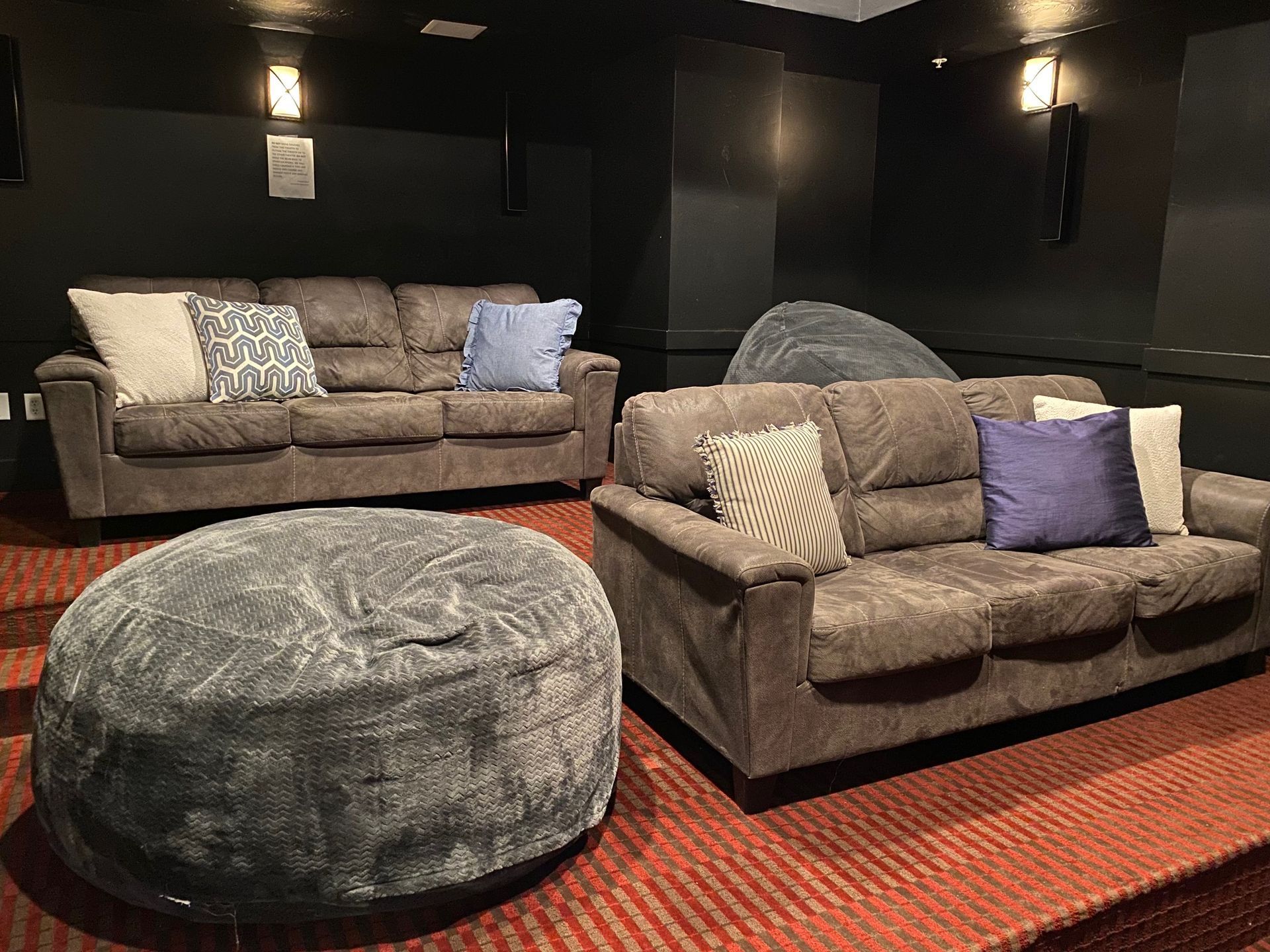College Tips Every Freshman Needs To Know

Hey there, freshman! First off, congratulations on making it into college. You're probably feeling a mixture of emotions right now—excited, anxious, maybe even a little scared. But don't worry, that's totally normal. After all, college is a big transition both academically and socially.
To help you, we've compiled a list of college tips every first-year student should know. Trust us; they'll come in handy!
The Home Prep
Readying for college starts long before you even step foot on campus. In fact, it begins at home. Since you're living in a student housing complex, there are some things you'll need to take care of before you move in.
For starters, you'll need to pack all of your belongings. It includes both your clothes and your textbooks. Pack enough for the entire semester, as you probably won't be going home too often. You also need to bring with you:
- Laptop or computer
- Printer
- All of your school supplies
- Any medications you take
- Driver's license and car registration (if you're bringing a car to campus)
- Bedding and towels
- First-aid kit
- Things that will make your new place feel like home: such as photos, posters, and mementos
And don't forget the little things like a power strip, phone charger, and laundry detergent. You'll also need to take care of any financial matters such as tuition and room and board. Most schools have a payment plan, so set that up well in advance.
Finally, you'll need to get your student ID. It will be your key to the dorms and other campus buildings, so be sure to get it before you move in. And bring all the necessary documents with you such as your birth certificate and social security card.
The Move-In
Here's where the real college experience begins. It's time to move into your dorm! Because you'll be living in a student housing complex, the first thing you'll need to do is check in at the office. They'll give you your room key and a tour of the complex, and you're good to go.
Find Your Room and Start Unpacking
Understandably, first-year students have the most stuff, so it might take a while to get everything situated. As a tip, try to unpack your essentials first—clothes, toiletries, etc.—so you can be comfortable while you finish up.
*Tips: Try unboxing and unpacking a little every day so it doesn't feel overwhelming. But if you have the time, go ahead and unpack everything at once. You can ask for help from your roommates, complex staff, or even your parents if they're around.
Get to Know Your Roommates
Doing so is one of the most important college tips for first-year students. Your roommates will be some of your closest friends, so getting to know them as soon as possible is important.
*Tips: Get to know your roommates by chatting with them, going out to eat together, or even studying together. If you're feeling shy, break the ice by bringing them a small gift, like a snack or a drink. You can also introduce them to your other friends.
Familiarize Yourself With the Campus
You wouldn't want to get lost on your first day of classes, so familiarize yourself with the school's map beforehand. Knowing where and how to get around will save you time and stress, especially during your first few weeks.
*Tips: A great way to familiarize yourself with the campus is to take a tour. Most schools offer one for prospective students before the school year begins. If you didn't take a tour before, don't worry—most schools also offer some for current students. You can also ask your roommates or other upper-level students for help.
The Academic Life
How well you do in college academically will largely depend on how you study, manage your time, and take care of your health and relationship with others. Here are some college tips to help you:
Develop a Study Routine
Devise a habit and stick to it. Set aside time each day to do your homework, review your notes, and study for upcoming exams. Although there is no one-size-fits all approach to learning, try to find a time and place that works best for you.
*Tips: A great way to develop a study routine is to set up a study schedule. Write down when and where you'll study each day, and then adhere to it. You can also try studying with a friend or forming a study group.
Scout for a Learning Spot
Whether it's a desk, a library carrel, or a comfy chair in the lounge, find a spot on campus where you feel most productive. Just see to it that it has everything you need, such as a power outlet and a good view. Then, make it your go-to spot for studying. We even have study areas throughout our facilities at Northpoint Apartments specifically created for our residents.
*Tips: If you're having trouble finding a good study spot on campus, try studying in the library. Most libraries have quiet areas where you can focus on your work. You can also try learning in a coffee shop or in your dorm room.
Manage your Time Wisely
With all the things you have to do—classes, homework, extracurricular activities, and more—it's important to manage your time wisely. That way, you can make the most of your college experience and avoid feeling overwhelmed.
*Tips: Use the power of sticky notes. Write down everything you need to do for the day, week, or month, and then stick it somewhere you'll see it often. That way, you won't forget anything. You can also try using a planner or setting reminders on your phone.
Buy or Rent Cheap Textbooks
If you want to save some money, buy or rent your textbooks online instead of buying them from the campus bookstore. You can also compare prices between different retailers to find the best deal.
*Tips: Book Viking, Rexburg's bookshop for college students, sells and rents textbooks for a fraction of the price. Head over and check it out. You can also buy used textbooks from other students or online retailers to save even more money.
Know the Grace Periods for Dropping/Changing Classes
Although the school won't charge you for dropping a class, you must do it before the deadline to avoid getting a "W" on your transcript. Do so only if it's absolutely necessary. Some valid reasons for dropping a class are:
- You're struggling academically
- You're not able to attend class regularly
- The course is not what you expected it to be
- You contracted an illness or have another emergency
*Tips: Talk to your professor or an academic advisor before dropping a class. They may be able to help you with your situation. Or seek help from the Student Success Center on campus.
Get to Know Your Professors
Your professors are your greatest resource regarding information about the class, your grade, and your career, so get to know them. Introduce yourself during office hours, and ask questions when you don't understand something.
*Tips: Some teachers are approachable, some are strict, and others are okay. Nonetheless, it doesn't hurt to try to get to know them. You never know when you might need their help.
Get Enough Sleep
No college student—even freshmen—can avoid pulling all-nighters to study for exams or finish a project. But if you're not careful, it can quickly catch up to you. Make sure to get enough sleep to function properly during the day.
*Tips: Most people need at least 7 hours of sleep, so try to get that much every night. If you can't, take a nap during the day. Just be sure not to nap for too long, or you'll have trouble sleeping at night.
Don't Procrastinate
Your worst college enemy is procrastination. It's tempting to put off assignments or study for exams, but it will only worsen things in the long run. So do your best to avoid it.
*Tips: One way to beat procrastination is by setting a goal for yourself. For example, tell yourself that you'll study for 30 minutes and then take a 5-minute break. Once you've done that, you can reward yourself with something you enjoy, like watching a TV show or going for a walk.
Start Working on Your Career Early
It's never too early to start thinking about your career. In fact, the sooner you start, the better. That way, you can ensure you're on the right track and get a head start on your future.
*Tips: Talk to your academic advisor about what classes you should take to prepare for your career. Also, look into internships or shadowing opportunities. And don't forget to network.
Join a Student Organization
One of the best ways to get involved on campus is to join a student organization. It's also a great way to meet new people and make friends. There are many different clubs to choose from, so you're sure to find one that interests you.
*Tips: Don't be afraid to try something new. You might be surprised at how much you like it. Also, don't feel like you have to join a club just because your friends are. Do what you want and what makes you happy.
The Social Scene
Of course, no college experience would be complete without the social scene. There's no shortage of things to do, from campus events to cliques. Just remember to prioritize your studies first and foremost.
Keep Relationships Healthy
Keeping your friendships and relationships healthy is important whether you're in a relationship or not. College is a time when people change and grow, so it's natural for relationships to change as well.
*Tips: If you're in a relationship, communicate with your partner. Discuss your expectations and needs. Be sure to set boundaries. If you're not dating, focus on building strong friendships. Spend time with your friends, and get to know them deeper.
Build Connections
In addition to relationships, it's also important to build connections. These can be with professors, mentors, or even just friends. The more people you know, the more likely you are to succeed.
*Tips: One way to build connections is by attending campus events. This is a great way to meet new people and get involved. Another way is to join a club or organization. Doing so will allow you to interact with people who share your interests.
Have Fun
Last but not least, don't forget to have fun. College is a time to explore new things and discover who you are. So make the most of it while being safe.
*Tips: Be sure to take advantage of all the campus offers. Attend events, join clubs, and try new things. And don't forget to enjoy your time with friends.
Staying Safe
Many risks surround college life. But with a few precautions, you can stay safe and enjoy your time in college. Here are a few safety tips to keep in mind:
- Avoid walking alone at night. If you must walk alone, carry a flashlight and your cell phone
- Trust your instincts. If you feel like something is wrong, it probably is
- Know your surroundings. Familiarize yourself with the area, and know where the safe places are
- Keep your belongings with you. Never leave your items unattended, even for a moment
Maintaining Your Well-being
You're just as important as your safety. To take care of yourself both physically and mentally, below are some tips:
- Exercise regularly. It's not only good for your body, but it can also help relieve stress
- Eat healthy. A nutritious diet will help you feel your best
- Take breaks. Don't try to do everything at once. Instead, take time for yourself to relax and rejuvenate
- Talk to someone. Speaking to a friend or counselor can help if you're feeling overwhelmed
What's Next
College is a time of growth and change. And as a freshman, you're just beginning your journey. But with these tips, you're sure to make the most of your college experience.













